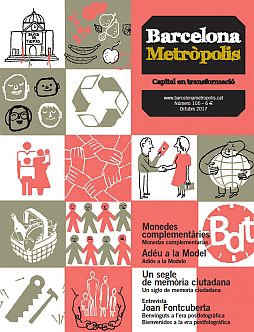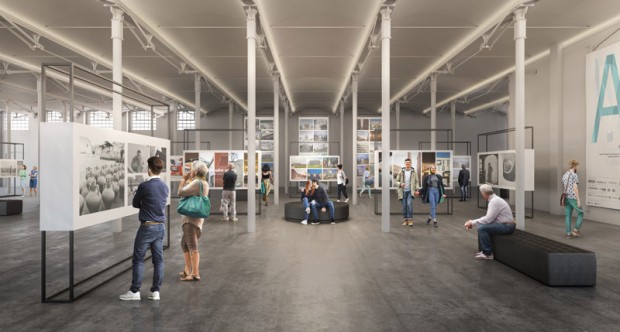The new archive facility will become a first-rate civic and cultural information centre, with the development of a city-wide programme of activities and close working relationships with neighbourhood study centres and workshops.
This past July, Barcelona City Council published details of a project to refurbish the main building of the old Can Batlló factory complex (consisting of 21,000 m2 of buildings) to create a new headquarters for the Municipal Archive of Barcelona (AMB) and, in so doing, bring together the various collections currently dispersed in 21 different archive centres and departments around the city. The project establishes a new, more universally accessible archiving model with a revamped and culturally sensitive programme of activities that caters to all perspectives. The Can Batlló plan will see the building fitted out as a place for the conservation, consultation and dissemination of information and, at the same time, establish it as a new centre for culture and information for the city.
The Barcelona Archive was created in the 13th century by the city’s fledgling Government to safeguard the privileges granted to the city, through a special political regime, by the successive Counts of Barcelona. Even so, the first attempts to organise the Archive did not occur until 1917, when it was decided to separate the historical and administrative document collections with the creation of two centres: the Historical Archive of the City of Barcelona (AHCB) and the Administrative Municipal Archive (now the Contemporary Municipal Archive of Barcelona, AMCB).
The City Council has more than 50 kilometres of documentation from every era and in every format (parchment, bundles, photographs, posters, maps, plans, not to mention sound, audiovisual and digital files), from both public and private sources, which reflect the life of the city over more than eight centuries. Free and unrestricted access to this documentation for administrative and research purposes is provided in the consultation rooms of the different centres. In addition, these facilities have photocopying services and organise cultural and community activities.
Integrating all the documentary collections into one centre at Can Batlló will provide sufficient space to accommodate incoming documentation in every format and promote public dissemination of an exceptionally valuable documentary heritage. The centralisation project also takes into consideration the savings that will be made through building a facility to house all the archival collections, thus streamlining spaces and services. The new Municipal Archive will make it easier for users to consult documents and research information, and it will also become an international paradigm, turning Barcelona into a global leader in the preservation and dissemination of documentary heritage and historical memory. Centralisation will also prevent loss of information, loss of legal proceedings owing to a lack of documentary evidence and loss of historical heritage caused by a shortfall in storage capacity.
Our city’s facilities for memory and knowledge must forge closer ties to the academic world and research so as to build alliances that integrate the educational sphere into the study of primary sources and, in so doing, become a permanent classroom for all. The City Archive must be reorganised and adapted to the needs and circumstances of our times.
This new cultural centre must be open to residents, in particular those living in the Sants-Montjuïc district, with the participation of the groups and entities that have helped to turn Can Batlló into a civic facility.




